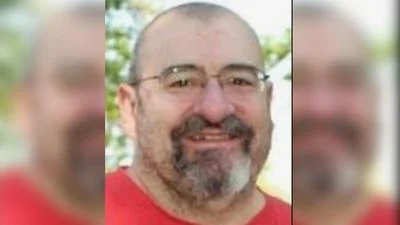Beni Harmony is a news anchor at NewsChannel 20. | Provided Photo
Beni Harmony is a news anchor at NewsChannel 20. | Provided Photo
For men and women who serve in uniform and their families, nothing is more important than reliability, especially when it comes to health care. Pharmacy Benefit Managers (PBMs) deliver that reliability—and then some—making medications affordable, accessible, and dependable for our patriots.
First, let’s talk trust. PBMs negotiate prescription prices in bulk, securing rebates and discounts that translate into real savings. On average, PBMs deliver over $1,000 in savings per patient each year, returning roughly $10 for every $1 spent. For a military family on a fixed income, that kind of value is more than helpful, it’s crucial.
But price isn't everything. Convenience matters, especially when spouses are deployed overseas or service members live far from base pharmacies. PBMs support mail-order and home delivery programs, supplying 90-day prescription refills with a single annual copay. No long pharmacy lines, no stress—just medication arriving on time, every time.
What’s more, the data confirms that convenience improves outcomes. Home delivery isn’t just easy—it ensures medication adherence. PBM programs prevent dosing lapses, which can lead to serious complications. That’s preventive care in action: fewer hospital visits, fewer emergencies, and more readiness for life and service.
PBMs aren’t faceless negotiators—they employ clinicians, pharmacists, and care managers who provide real, personalized support. Military families receive reminders, refill alerts, and conflict checks to prevent dangerous drug interactions. That level of care isn’t optional—it’s essential in high-stress environments.
Speaking of monitoring, PBMs also improve safety via formulary design. By directing patients toward effective, lower-cost generics and specialty medications, they help reduce medical errors—an estimated 100 million annually. That’s accuracy and safety built into the system.
PBMs also play a key role in specialty pharmacy. They serve high-cost patients under a unified system, coordinating care, verifying dosing, and ensuring timely access. Research shows that this model reduces total care costs by 5–6% per clinical episode. For military families dealing with chronic or complex conditions, that’s $100s saved, and fewer complications.
Critics argue PBMs limit pharmacy choice. But military TRICARE benefits—with PBM-administered mail-order, chain, and local networks—demonstrate otherwise. The focus is on efficient access, not restriction. Mail-order is optional; local pick-up remains available. PBMs effectively balance efficiency with choice.
PBMs also relieve the pressure on base pharmacies. By offloading routine prescriptions to home delivery, on-base clinics can focus on acute care and in-person needs. It’s a force multiplier—military resources used where they matter most.
Finally, PBMs bring robust transparency to military benefits. Programs like TRICARE are evolving—and PBMs provide critical cost data, rebate summaries, and performance metrics. That visibility ensures the military can budget effectively and adapt to rising pharmaceutical costs.
In the end, PBMs serve military families in ways big pharma and traditional pharmacies cannot. They’re architects of affordable access, patient safety, and medication consistency—even if that means enraging drug companies and legacy pushers. To those who say PBMs are "middlemen"—look at the outcomes. Home delivery that reaches every corner of the country. Real-time pharmacists monitoring medication. Over $1,000 in savings per patient each year. Hundreds of millions of dollars in avoidable hospital costs down. That’s not bureaucracy—that’s backbone.
Military families deserve a system that’s dependable, seamless, and results-driven. PBMs deliver. If we truly care about the ones who wear the uniform, supporting PBMs isn’t debatable.
Beni Harmony is a news anchor at News Channel 20 in Springfield, and former Director of Administration for U.S. Ambassador Robert O’Brien.






 Alerts Sign-up
Alerts Sign-up